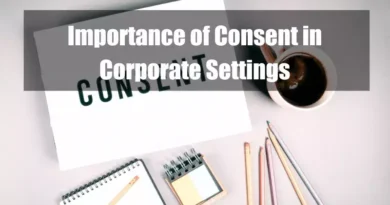How Many Teenage Relationships Last Until Marriage? Stats
Takeaways
| Insights on Teenage Relationships |
|---|
| Fewer than 2% of people marry their high school sweetheart, and of those, only about half stay married for ten years. |
| Teenage relationships are typically shorter due to the significant personal growth and changes that occur during adolescence. |
| Emotional maturity, trust, respect, and effective communication are key factors influencing the longevity of teenage relationships. |
| Shared interests, supportive social networks, and prioritizing emotional and physical well-being contribute to relationship success. |
| Building lasting teenage relationships involves self-reflection, setting boundaries, managing conflicts, and supporting each other’s growth. |
| Healthy teenage relationships emphasize mutual respect, equality, and independence while addressing challenges constructively. |
Introduction
While some high school sweethearts defy the odds, statistics show teenage relationships ending quickly. Fewer than 2% of people marry their high school sweetheart, and of those who do, only about half reach their 10th anniversary. This is likely due to the high rate of change teenagers experience, making long-term compatibility less likely.
Whether you’re a teenager seeking guidance or a concerned parent wanting to support your child, join us as we unravel the mysteries of teenage relationships and discover the secrets of lasting love.
How Many Teenage Relationships Last Until Marriage?
While there is no decisive answer to the question “How many teenage relationships last until marriage?” statistics explain the frequency and potential of these unions. It’s important to note that teenage relationships, by nature, tend to be shorter in duration compared to relationships formed in adulthood. According to a study, approximately 2% to 4% of teenage relationships progress to marriage. Although the percentage may seem relatively low, it’s crucial to remember that teenage relationships are valuable learning experiences, helping the following:
- Developing emotional intelligence
- Communication skills
- An understanding of love and commitment
Factors Affecting the Longevity of Teenage Relationships
A. Emotional Maturity: Laying the Foundation for Lasting Love
Emotional maturity plays a significant role in the longevity of teenage relationships. As adolescents navigate the complex landscape of emotions, both partners must possess a certain emotional intelligence and resilience. Emotional maturity enables individuals to communicate effectively, manage conflicts, and support each other’s personal growth. When teenagers enter into relationships with a solid foundation of emotional maturity, they are more likely to develop healthy and lasting connections.
B. Mutual Trust and Respect: The Cornerstones of Lasting Relationships
Trust and respect form the cornerstones of any successful relationship, and teenage relationships are no exception. Trust involves relying on each other, being honest, and maintaining confidentiality. Respect demands valuing each other’s opinions, boundaries, and individuality. When teenagers establish relationships built on trust and respect, they create a nurturing environment that promotes growth, security, and longevity.
C. Effective Communication: Strengthening Bonds
Communication serves as the lifeblood of any relationship. In teenage relationships, effective communication allows partners to express their needs, desires, and concerns openly. When communication channels remain open, misunderstandings can be addressed, conflicts can be resolved, and intimacy can be deepened. By developing strong communication skills, teenagers can enhance their relationships and increase their likelihood of lasting until marriage.
D. Shared Interests and Values: Fostering connection
Teenage relationships that thrive long-term often involve partners who share common interests and values. When teenagers discover shared hobbies, passions, or beliefs, they cultivate a sense of connection and camaraderie. These shared experiences contribute to the strength and endurance of the relationship, laying the groundwork for a future together.
E. Supportive Social Networks: Encouraging Healthy Relationships
The influence of friends and family cannot be underestimated in teenage relationships. A supportive social network provides a nurturing environment where teenagers can seek guidance, advice, and encouragement. Positive peer relationships and parental involvement contribute to the success of teenage relationships, offering stability and perspective during challenging times.
F. Emotional and Physical Well-being: Nurturing Healthy Relationships
Prioritizing emotional and physical well-being is essential for the longevity of teenage relationships. When partners take care of their mental and physical health, they are better equipped to support each other through the ups and downs of the relationship. Encouraging self-care practices, promoting healthy boundaries, and fostering open discussions about mental health are crucial steps toward nurturing a sustainable and lasting relationship.
Tips for Building Lasting Teenage Relationships
Building a lasting teenage relationship requires both partners’ effort, understanding, and commitment. Consider these valuable tips to cultivate a relationship with the potential to endure until marriage:
- Invest Time in Self-Reflection: Before entering a relationship, teenagers should understand their wants, needs, and values. This self-reflection helps set the foundation for a compatible and fulfilling partnership.
- Build trust Gradually: Trust is not built overnight; it evolves through consistent actions and open communication. Establish trust gradually by honoring commitments, respecting boundaries, and being honest with each other.
- Communicate Openly and Honestly: Effective communication involves active listening, expressing oneself clearly, and being receptive to feedback. Emphasize open and honest communication to foster a strong and resilient connection.
- Support Each Other’s Individual Growth: Encourage personal growth and independence within the relationship. Support each other’s dreams, aspirations, and hobbies, allowing individuality and self-discovery.
- Manage Conflict Constructively: Conflict is a natural part of any relationship. Teach teenagers to approach conflicts with empathy, active problem-solving, and a willingness to compromise. This approach helps build resilience and strengthens the bond between partners.
- Prioritize Quality Time Together: Balancing personal commitments with quality time as a couple is crucial. Create opportunities for shared experiences, adventures, and heartfelt conversations to deepen the connection.
Expert Relationship Advice for Teenagers
As teenagers navigate the exciting world of relationships, they must be equipped with valuable advice that promotes healthy connections and emotional well-being. Here are some expert relationship advice tips specifically tailored for teenagers:
A. Get to Know Yourself:
Before embarking on a romantic relationship, take the time to explore and understand yourself. Discover your passions, interests, and values. Knowing yourself well will help you make informed decisions about the type of partner you want and the qualities that are important to you.
B. Focus on Friendship:
Strong relationships are often built on a foundation of friendship. Before diving into a romantic relationship, establish a solid friendship with the person you’re interested in. Friendship allows you to build trust, understanding, and a deeper connection that can withstand the test of time.
C. Set Clear Boundaries:
Boundaries are essential in any relationship. Take the time to identify your boundaries and communicate them openly and honestly to your partner. Respect each other’s boundaries and be mindful of them as you navigate your relationship together.
D. Practice Effective Communication:
It’s important to communicate to have a lasting relationship. Learn to express your feelings, thoughts, and needs clearly and respectfully. Equally important, listen attentively to your partner and seek to understand their perspective. Effective communication builds trust, resolves conflicts, and strengthens your bond.
E. Build trust:
Trust forms the base of any successful relationship. To be someone others can count on, you should always be truthful, trustworthy, and dependable. This means you must say what you mean and do what you say. Here are some simple ways to achieve that:
- Be reliable: Do what you promised and follow your commitments.
- Be honest: Always tell the truth and avoid misleading or deceiving others.
- Also, be consistent: Keep your actions and words consistent over time, so people can trust you to be the same person in different situations.
Trust takes time to develop, so be patient and consistent in demonstrating trustworthiness to your partner.
F. Embrace independence:
While being in a relationship is wonderful, it’s crucial to maintain your individuality and pursue your own goals and interests. Encourage your partner to do the same. Independence allows both individuals to grow personally and brings a healthy balance to the relationship.
G. Manage Conflict Constructively:
Conflicts are a normal part of any relationship. Instead of avoiding or escalating conflicts, learn to manage them constructively. Use “I” statements to express your feelings, actively listen to your partner, and seek solutions that work for both of you. Remember, compromise is key.
H. Support Each Other:
In a healthy relationship, partners support and uplift one another. Celebrate each other’s successes and provide a shoulder to lean on during challenging times. Be each other’s cheerleaders and offer encouragement as you pursue your dreams and aspirations.
I. Practice Empathy and Understanding:
Empathy is when you understand and feel the same emotions as someone else. Cultivate empathy by putting yourself in your partner’s shoes and seeking to understand their experiences, emotions, and perspectives. This creates a nurturing and compassionate environment in your relationship.
J. Take Care of Yourself:
Self-care is crucial in any relationship. Prioritize your physical and mental well-being by engaging in activities that bring you joy and calmness. Remember that you can only be a supportive partner if you care for yourself first.
K. Respect and Equality:
Be respectful to your partner and anticipate the same treatment in return. Relationships should be based on equality, where both partners have equal say and power. Respect each other’s opinions, boundaries, and individuality.
L. Be Mindful of Red Flags:
Pay attention to any warning signs or red flags that may arise in your relationship. If your partner displays controlling behavior, disrespect, or a lack of empathy. In that case, it may be necessary to reassess the healthiness of the relationship.
M. Seek guidance:
Don’t hesitate to seek guidance from trusted adults, mentors, or relationship counselors if you’re facing challenges or unsure about certain aspects of your relationship. Seeking help is a sign of strength and can provide valuable insights and support.
Remember, relationships take time, effort, and commitment to flourish. Be patient with yourself and your partner as you navigate the ups and downs of teenage relationships. Focus on building a foundation of respect, trust, and effective communication, and embrace the joys and lessons of the journey of love.
FAQ
How can I know if my teenage relationship is healthy?
Healthy teenage relationships are characterized by mutual respect, trust, effective communication, and support for each other’s growth. If you feel safe, valued, and heard within the relationship, it is likely to be healthy.
Should I prioritize my education over a teenage relationship?
Education is a vital aspect of personal development. Finding a balance between nurturing your relationship and prioritizing your education is crucial. Openly communicate with your partner about your academic goals and support each other’s ambitions.
How can I handle peer pressure in my teenage relationship?
Peer pressure can exert a significant influence on teenage relationships. Communicate openly with your partner about your values and boundaries. Surround yourself with friends who support and respect your choices, allowing you to resist negative peer pressure.
Is it normal for teenage relationships to experience ups and downs?
It is normal for teenage relationships to experience ups and downs. Building resilience within the relationship and openly addressing challenges can help you navigate these fluctuations.
What role should parents play in teenage relationships?
Parents can provide guidance and support by fostering open communication, setting healthy boundaries, and ensuring their child’s emotional well-being. Parents should try to create an environment where their teenager feels comfortable discussing their relationship experiences.
How do I end a teenage relationship if it is not working out?
Ending a teenage relationship requires careful consideration and open communication. If your relationship isn’t good or satisfying, talking honestly about how you feel with your partner is important. Remember to approach the situation with empathy and respect.
Conclusion
Teenage relationships have the potential for lifelong happiness and fulfillment, but their duration varies widely until marriage. By understanding the statistics, recognizing the factors influencing longevity, and following expert advice, teenagers can build strong and lasting connections. Remember, the journey of teenage relationships is not solely focused on the destination but rather on the personal growth, self-discovery, and valuable life lessons gained along the way.










Comments are closed.